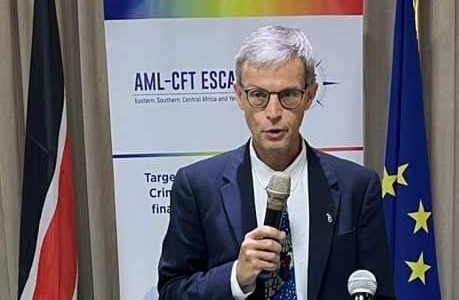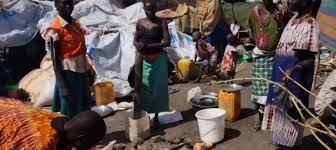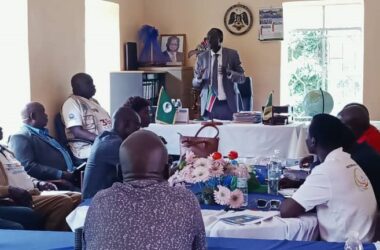By Philip Buda Ladu
European Union (EU) has called for a renewed commitment to women’s participation in peace and security, as concerns mount over escalating clashes in the country.
Speaking at opening of an Annual Gender Equality Forum on Tuesday in Juba, Lothar Jaschke, Deputy Head of EU Delegation to South Sudan emphasized the link between gender equality and lasting peace in the conflict-affected nation.
The forum, running from June 17-19, focuses on enhancing monitoring of gender-related laws and international commitments, as well as reviewing the outcomes of the 2024 Annual Gender Equality Forum Resolution.
Jaschke, co-chair of the Women, Peace, and Security (WPS) Working Group, highlighted the EU’s unwavering commitment to the WPS agenda, which advocates for women’s full, equal, and meaningful participation in peacebuilding, security, and political processes.
“25 years on, [the WPS agenda] remains more relevant than ever in the current geopolitical context and changing security environment. Everywhere. Just look around you,” Jaschke stated.
He stressed the importance of implementing the National Action Plan on UNSCR 1325, aimed at integrating the WPS framework into national policies.
The EU has appointed an Ambassador for Gender and Diversity to further integrate WPS commitments into its global actions, particularly in conflict prevention, resolution, peace negotiations, and post-conflict recovery.
Expressing deep concern over the disproportionate impact of armed conflicts on women and girls, including the prevalence of sexual and gender-based violence (SGBV), Jaschke urged all stakeholders to enhance efforts to prevent and counter such violence, ensuring full accountability and combating impunity.
He encouraged the forum to advocate for the domestication of international conventions like the Maputo Protocol and CEDAW, along with other relevant laws, to promote the WPS agenda in South Sudan.
The EU has been a consistent advocate for gender equality in South Sudan, having supported seven projects with seven million euros aimed at women’s empowerment at the grassroots level, providing psychosocial and legal support to survivors of violence, and promoting economic and social empowerment.
While these specific projects concluded last year, Jaschke affirmed the EU’s continued engagement, noting the launch of successor projects focused on countering SGBV, including in the context of forced displacement, in collaboration with the German Federal Ministry for Economic Cooperation and Development (BMZ).
Furthermore, Jaschke underscored the EU’s broader commitment, stating that 85% of all EU interventions by 2025 are globally aimed at contributing to gender equality, guided by the EU’s Gender Action Plan III.
However, the Deputy Head of Delegation did not shy away from the grave security situation in South Sudan.
“We witness an escalation of armed clashes not seen since 2018,” he remarked, condemning the ongoing violence, military offensives, aerial bombardments, and attacks on health centers, which he said undermine the Revitalized Peace Agreement.
Joining calls from IGAD and the African Union, Jaschke urged for an immediate ceasefire, the release of political detainees, dialogue, and political solutions to return to the implementation of the R-ARCSS.
“The overriding imperative is to prevent a relapse into war, support the inclusive implementation of the Agreement and progress the transition towards South Sudan’s first democratic elections,” he asserted.
Jaschke further reiterated the EU’s commitment to supporting South Sudan’s transition to a stable, peaceful, and democratic country, emphasizing that this can only be achieved through trust, confidence, and common political will.
“The country needs agriculture and investments and not weapons. And I am fully and strongly convinced that it needs many more women in politics and in the security forces. Not only in South Sudan. All over. I am convinced that our world would look much better and peaceful if there were more women in leading position,” he firmly stated.



